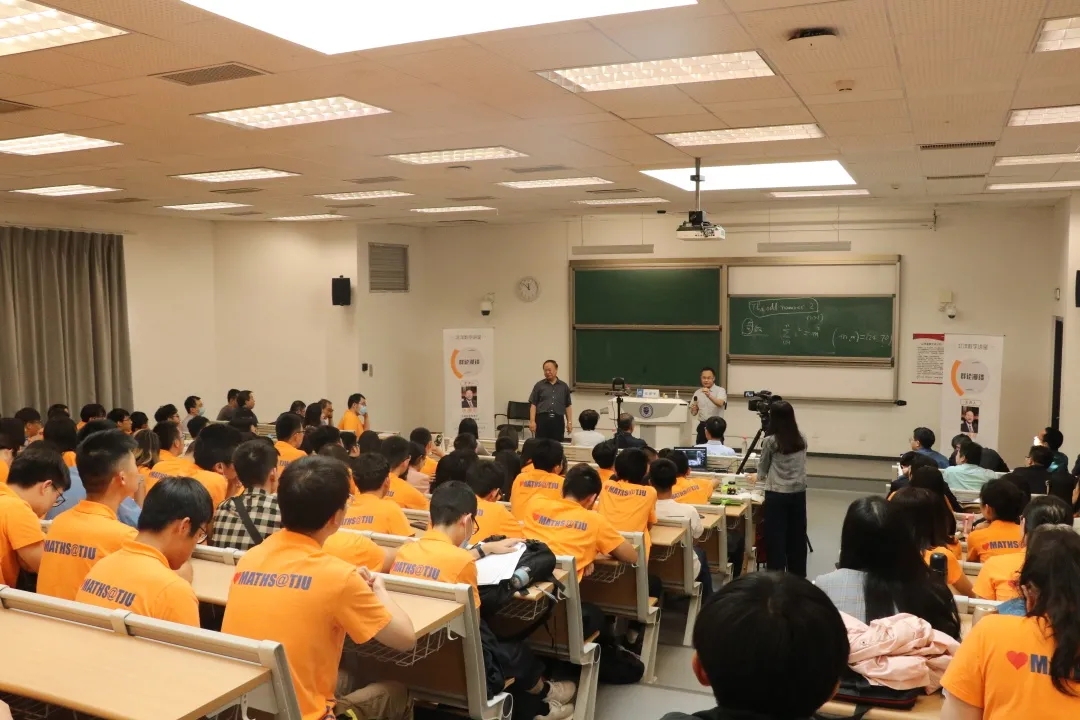
On the morning of September 18, 2020, Professor Zhang Jiping was invited to the Peiyang Maths Forum to give the first math class for the freshmen of the School of Mathematcs on group theory. Zhang Jiping, a professor of Peking University and academician of Chinese Academy of Sciences.
“The greatest joy of communicating with students is that can learn something from each other.” Professor Zhang’s openning rematks brought him closer to the audience. The temperament of a mathematician often complements the characteristics of his research direction. He hoped that the students can learn about more knowledge beyond group theory under the discussion of group theory.
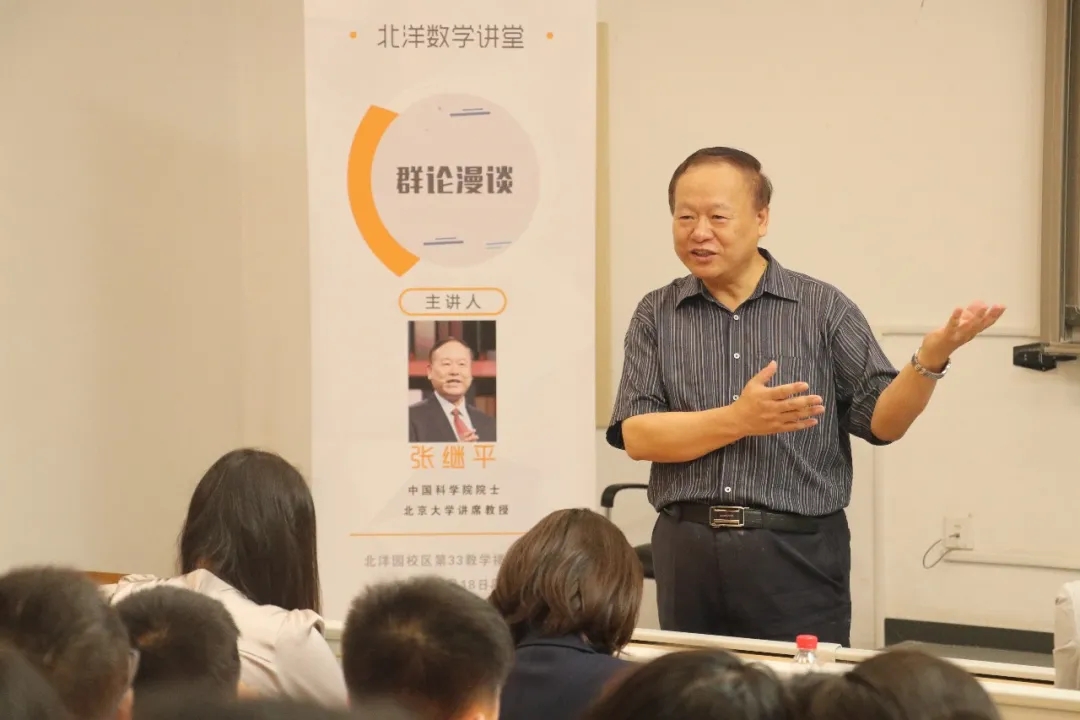
Zhang Jiping started his lecture with the origin of the Chinese character "群" and its related ancient writings. He said that many people think of mathematics research as a solitary meditation. However, mathematics today can not be defined by old concepts. It needs more people to work together. Unity and teamwork are the spirit of group theory as well as the temeramenrt and style of group theorists.
So what is the strict definition of “group” in mathematics? Zhang Jiping wrote down the equations on blackboard and explained them in detail. A group is a set with an operation, which satisfies the associative law, and has a unit element, each of which has an inverse element. The origin of the concept of “group” is mainly derived from the famous genius mathematician Galois who considered solving questions with the root of an equation in unary higher order algebra. Galois creatively related questions to the groups consisting of all permutations of the root set of the equation .
If G is a finite group and HÌG is a subgroup, then according to Lagrange's theorem, we have |H|||G|. So naturally, the notion of a subgroup is associated with the factors of integers and the quotients of integers induce the so-called quotient groups.
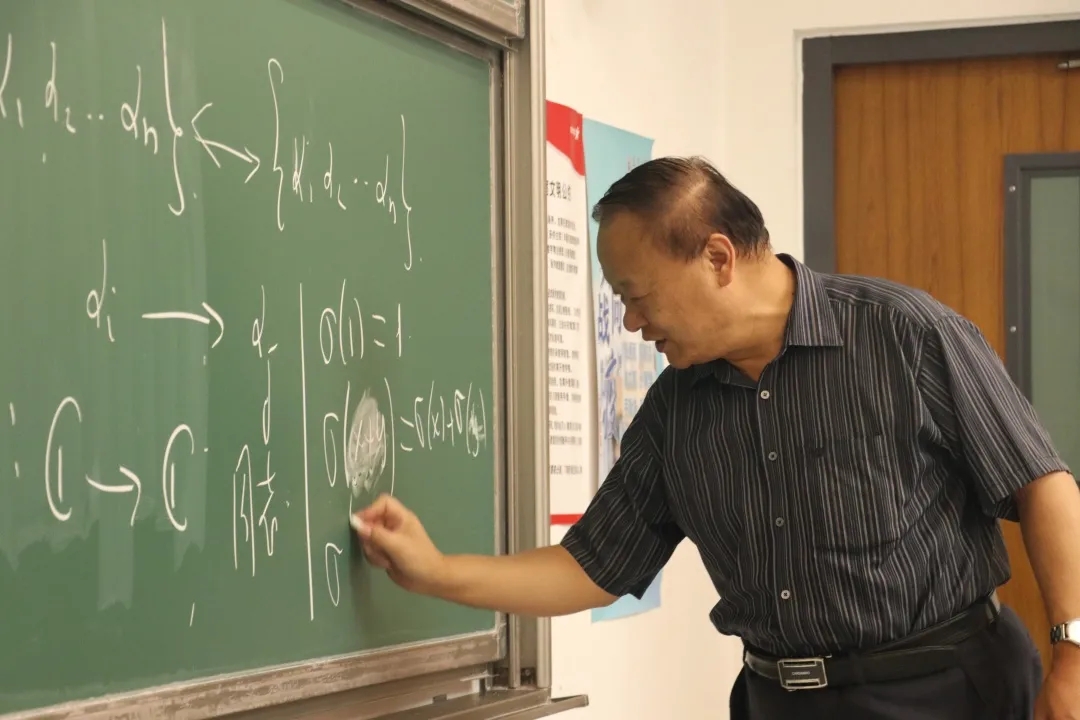
Analogous to prime numbers, there are so-called simple groups. Zhang Jiping emphasized that finding all prime numbers is a very difficult and unsolved problem. However, group theorists have obtained the famous classification theorem of finite simple groups through cooperation. The result was completed by more than 500 group theorists in over 2000 papers between 1954 and 1983. The second simplified version of the theorem is currently progressing well and is expected to be completed in 2023. This is an epoch-making result in honor of Feit and Thompson 60 years later, that is, any odd-order group is a solvable group.
This conclusion was published in the Pacific Journal of Mathematics in 1963, with a total of 255 pages, and was reported by The Times as the greatest mathematical theorem in contemporary times. Later, many people and even mathematics master Atiyah tried to simplify the theorem but failed. Although the simplification theorem failed, Atiyah's article left many important mathematical ideas to the younger generation. Professor Zhang told us that the ideas, the simplicity and beauty of the truly great mathematical theorems are worthy of our lifelong efforts to understand, appreciate, and gain inspiration.
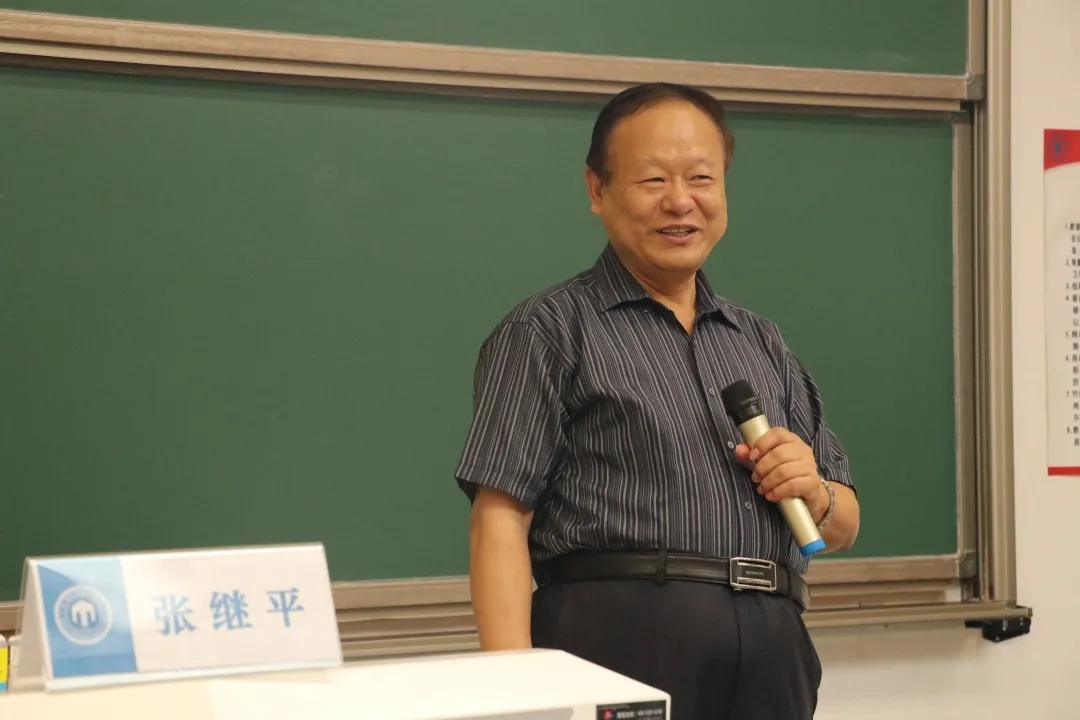
Afterwards, Zhang Jiping put forward Thompson's conjecture, sowing the seeds for mathematical savants. Then he shared his views on the Monster Group and offered suggestions for learning abstract algebra. He emphasized that the development of mathematics nowadays is becoming more and more comprehensive. Although Algebra, analysis,and geometry are of unique characteristics of their own,students should not focus on a certain subject with great passion. And Mathematics should be regarded as a whole at the university level. For example, finding the roots of equations is an algebraic problem, solving the roots of a bunch of equations is a geometric problem, and approximating arbitrary functions with polynomials is analytical problem. Zhang drew an analogy between the shaolin Monks' martial arts and the basic mathematical skills training to illustrate the importance of diligence. Students must change their learning attitudes. The poor knowledge foundation cannot become an excuse forslacking off in basic skills training. As we know, there is no natural-born genius.
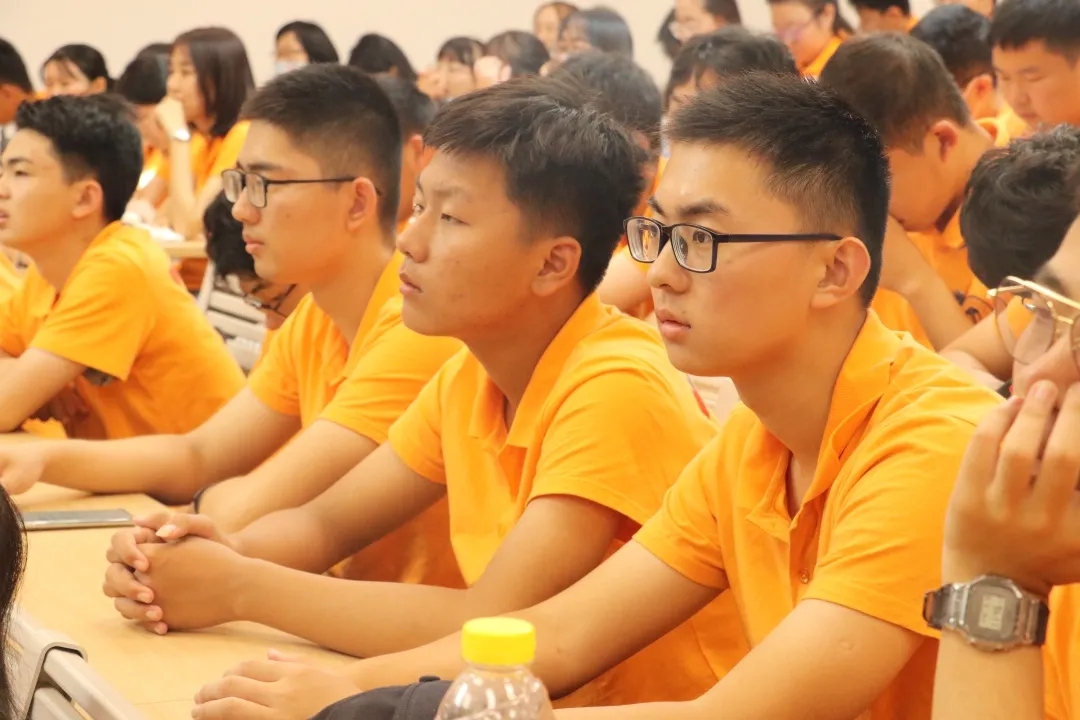
He said that for a mathematician, there's no better happy than holding a piece of chalk and turning a flash of inspiration into a jumble of mathematical symbols at his fingertips. And the meanwhile, it is only a prelude of mathematics research for the numerous students present here.




